Effective and Rising. Interview with the President of the Board
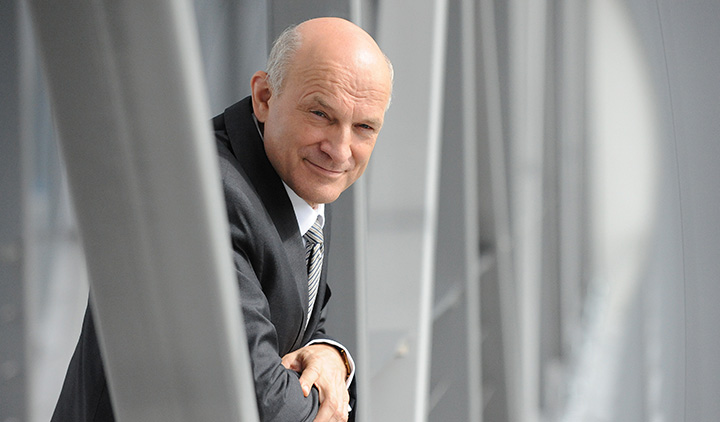
{GRI 1.1., 1.2.}
Socially responsible business is…
Our approach to corporate social responsibility goes back to the very beginnings of Grupa LOTOS when it took its shape, and is of fundamental character; whenever we speak of CSR, we mean doing business. We reckon that the biggest responsibility of business is simply to conduct its activities properly. Years ago, Milton Friedman, Nobel Prize winner in Economic Sciences, famously said that “there is one and only social responsibility of business – (…) to increase its profits”. Today, however, one can say that its biggest responsibility is to be effective and efficient as, in fact, there is nothing worse for stakeholders than having to deal with an unprofitable company which does not pay its dues on time and cannot provide decent work environment for its employees due to its poor standing. As for my personal approach to CSR, I think that key are answers to the following questions: “how do we make a profit?”, “how do we meet our obligations?” and “how do we manage the impact of our activities to ensure long-term growth for our company that is beneficial to both the company and its environment?”. In other words, “how do we do our business to make sure that it is good business?”, so that we can say – similarly as we would say of an individual – that it is solid and reliable; the business which, on the one hand, is economically efficient and at the same time is conducting its activities properly and meeting its duties, on the other. When defining CSR, one can speak a lot of responsibility, integrity and other qualities attributable to both people and companies; at LOTOS, however, at the heart of our approach to CSR is being solid and reliable as a properly managed and profitable business.
LOTOS places particular importance on the idea of sustainable development – what does it mean in practice?
What we mean by saying that our company is being managed in line with the principles of sustainable development is that we take into account the needs and interests of the natural environment and of the community in which we operate. For our activities, one of the most important premises in both our everyday operations and running our production processes as well as in our investment and development plans are environmental issues. Therefore, we deploy such solutions as to allow us to minimize our environmental impact and to utilize natural resources as best we can; to make sure we achieve that, we employ Best Available Techniques adopted by the international community, especially across the EU. Adhering to the principles of sustainable development also means making a commitment to manufacture products whose environmental impact – when they are used by our customers – is mitigated as far as it is possible.
Corporate social responsibility is also about striving to achieve sustainable development while simultaneously respecting human rights, and building good relations with our neighbours, the local community, and – most importantly – with our employees. By engaging in a range of activities, we improve our employees’ quality of life; by creating jobs, we improve the quality of life of the entire society. We treat responsibly all our stakeholders, both internal and external. Being an oil company, the responsibility we feel is crucial as our decisions affect the future of people and the natural environment; our customers get better products, the community has a neighbour who supports the local prosperity and the development of the young generation, and the national economy is provided with a solid foundation to function upon.
Grupa LOTOS is a signatory to the ‘Declaration of Polish Businesses for Sustainable Development’. In 2013, the Company got engaged in work on honing the ‘Vision 2050’, the document accompanying the Declaration, in the area of energy. However, it is not the only platform for cooperation aimed at meeting challenges this sector is facing, is it?
We have repeatedly proven our engagement in dialogue with key sector stakeholders not only on the national but also on the international level; most recently, in April 2014 at the Energy Summit '29+1' in Bucharest, one of the periodical meetings of representatives of Central European energy sector companies with Guenther Oettinger, EU Commissioner for Energy. These meetings are organized by Central European Energy Partners, an association of which we are a founding member. This time, main subjects for discussion included issues such as energy prices and EU climate objectives which hold back the competitiveness of the EU economy as well as the energy sector security in view of the current events in Ukraine. As CEO of Grupa LOTOS, I expressed my strong conviction that we should considerably reduce Central Europe’s dependence on gas supplies from one source and take action to protect and further develop our industry which shall be conducive to creating jobs. In the Bucharest Memorandum adopted at the end of the meeting, its participants called upon the EU not to strive to eliminate the use of fossil fuels but to support investment projects aimed at developing more effective technological solutions to reduce CO2 emissions.
For the climate policy to produce discernible results on a large scale, pro-environmental actions need to cover the entire world; therefore, when determining the objectives for our climate policy, we should closely observe which direction rival world economies are taking. While fully standing by the EU 20-20-20 objective, we intend to promote optimal approach to pursuing its objectives on climate protection, sustainable development and the security of the energy sector. It means that we will support a common and comprehensive EU policy which takes into account the vital interests of Central European countries, including initiatives such as creation of an internal energy market or construction of the Central European Energy Corridor and the North-South Transport Corridor. At the same time, we consider it to be equally important to determine new climate and energy objectives until 2030 and to establish new guidelines on exploration for and production of shale gas.
Central European countries need to develop their industries in an effective and consistent manner with a view to creating jobs. The prerequisite for that is cheap energy, the production of which will be mostly based on easily available domestic energy resources. As CEEP, we consistently advocate striking the right balance between the EU’s economic development and its climate policy. The pace at which the objectives of the latter are to be met should not disregard economic realities of either the EU Member States or the global conditions. We strongly believe that the energy sector policy which does not take into account the differences in economic development between individual Member States will have a detrimental effect on Central European countries. The implementation of the climate policy targets, especially with regard to reducing CO2 emissions, needs to be modified if we are concerned about keeping the European Union competitive as a whole.
Is the ‘Effective and Rising’ Programme announced by LOTOS in mid-2013 the Company’s response to the challenges of the modern economy?
When explaining to our stakeholders the baselines of our new strategic project, I declared: ‘While everyone else is struggling to stay afloat, we know how to win the future’. Today, I stand by what I said then entirely. Nowadays, most successful are these companies that possess the ability to react quickly and adapt to changes and that are experts in their respective fields. Such a business model allows them to focus more effectively on the tasks to be completed and to pool skills which help them stand out from the rest. It was this observation that guided our work on the 2013-2015 Effective and Rising Programme, the purpose of which is to restructure the LOTOS Group and to aid its further business expansion. It sets out the next stage of our development and serves as a guarantee for increased efficiency and effectiveness of our actions. While focusing on the key areas of our competence, we put main emphasis on our core business, simplify the structure of the LOTOS Group and free up funds for achieving our objectives. And when doing that, we take into account the interests of our key stakeholders groups as we are well aware of the impact we have on our environment in the economic, social and environmental aspects.
Does Grupa LOTOS see the chance to accomplish its objectives in its openness in communication with the market?
This Integrated Annual Report is already our fifth report of that kind. In 2010, we decided to integrate our reports to present the management approach and performance in all aspects of our activities to all our stakeholders. These reports illustrate the scope and nature of our impacts on the environment but also answer the question how, by mitigating associated risks, we maximize the chances for our business to thrive in the long term. By responsibly managing the productive, financial, natural and human capital entrusted with us, we consistently implement our value growth strategy. By communicating to the market in an open and transparent manner the conditions for our operations, as well as our performance and future plans, we prove that we are a reliable and trustworthy partner. This fact found its confirmation in the high rating we achieved in the opinion survey conducted in 2013 on the quality of LOTOS communication with the capital market, which analyzed the Company’s approach to presenting social and environmental aspects of its operations along with the corporate governance. Without a doubt, it is a significant factor that affects the value of our business.

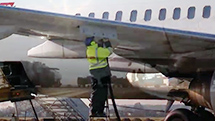
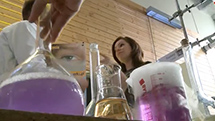
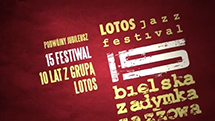
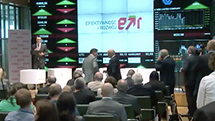




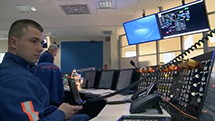

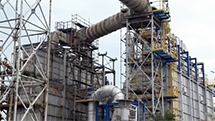
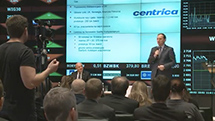
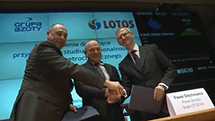
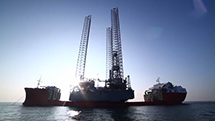
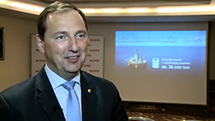
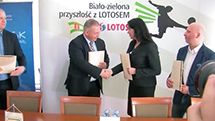
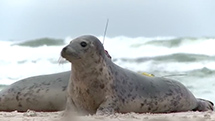
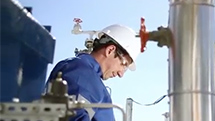

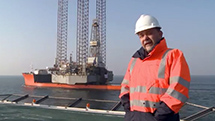
 E-mail
E-mail Facebook
Facebook Google+
Google+ Twitter
Twitter